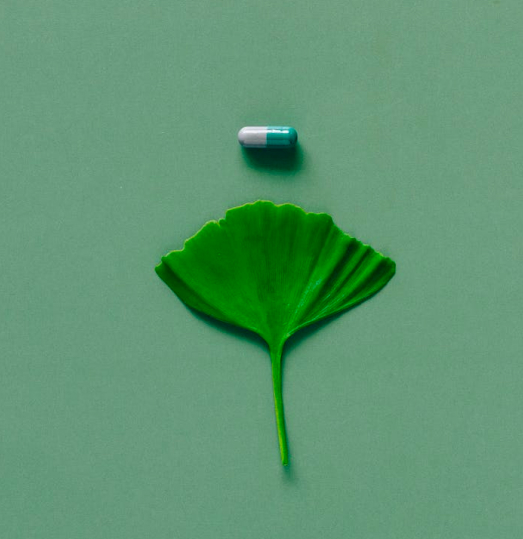
Darshan Shah, M.D.’s
Testosterone Support for Men
Protocol overview
Last updated: May 13, 2025
6 Nutrients
Tongkat Ali
400mg
Tongkat Ali (Eurycoma longifolia) is an adaptogenic herb known for its ability to support healthy testosterone levels, enhance libido, and improve physical performance. Research suggests it may work by reducing cortisol, stimulating luteinizing hormone (LH), and inhibiting aromatase activity, leading to increased free and total testosterone availability. [1]
See how your current
nutrient totals stack up
Log in or sign upShilajit
500mg
Shilajit is a bioactive, mineral-dense resin renowned for its role in optimizing testosterone levels and supporting male reproductive health. Rich in fulvic acid and essential trace minerals, it may enhance androgenic activity, improve sperm quality and motility, and exert anti-inflammatory effects. [2]
Boron
10mg
Boron is a trace mineral that plays a role in hormonal balance, testosterone regulation, and reducing SHBG levels. Research suggests that boron supplementation may increase free testosterone, lower estradiol, and reduce SHBG, enhancing testosterone bioavailability. [4]
DHEA
50mg
DHEA (Dehydroepiandrosterone) is a precursor steroid that serves as a substrate for testosterone and estrogen synthesis, playing a key role in hormonal regulation. With age, DHEA decline significantly, potentially impacting testosterone levels. DHEA supplementation may help counteract age-related hormonal decline, particularly by supporting free testosterone levels in older men or those under high physical stress. [5]
Fenugreek
1250mg
Fenugreek supports testosterone by providing bioactive compounds like saponins and protodioscin, which may help reduce SHBG (sex hormone-binding globulin), increasing free testosterone levels. It also supports libido, strength, and muscle recovery, promoting hormonal balance and peak performance. [6]

Make Sense of Supplements
SuppCo is the world’s first app for building your Supplement Stack and meeting real health goals with Expert Protocols.
Download the appProducts
SuppCo does not participate in supplement affiliate programs. The links below are provided solely for your convenience.
Warnings
Consult a healthcare provider if you have hormone-sensitive conditions, prostate cancer, or are on hormone therapy without supervision.
Lifestyle Improvements
Testosterone plays a foundational role in men’s health, impacting energy, strength, mental clarity, and longevity. While levels naturally decline with age, lifestyle choices have a significant influence on hormone production and balance. If you want to sustain peak performance, recovery, and metabolic health, taking a proactive approach to testosterone optimization is key. Beyond supplementation, the right combination of strength training, sleep, stress management, and nutrition can make a lasting difference.
Train with Intention
Resistance training, especially heavy compound lifts (squats, deadlifts, presses), stimulates testosterone production and preserves lean muscle. Aim for 3–5 sessions per week with progressive overload. Mix in functional training for mobility, Zone 2 cardio for heart health, and occasional HIIT to support metabolic flexibility.
Prioritize Deep Sleep
Testosterone is primarily produced during sleep. Inconsistent or low-quality sleep elevates cortisol and reduces testosterone. Aim for 7–9 hours nightly, avoid screens before bed, sleep in a cool, dark room, and get sunlight exposure in the morning to support circadian alignment.
Minimize Stress to Support Hormones
Chronic cortisol elevation can suppress testosterone. Daily breath work, mindfulness, cold exposure, and sauna use can help regulate the nervous system, reduce inflammation, and support hormonal resilience.
Optimize Nutrition for Hormonal Balance
Adequate protein (1g per pound of lean body mass), healthy fats (olive oil, omega-3s), and key micronutrients (zinc, magnesium, boron, vitamin D) are essential for hormone production. Avoid processed foods, added sugars, and industrial seed oils that can impair metabolic and endocrine health.
Avoid Hormone Disruptors
Environmental toxins matter. Endocrine disruptors like BPA and phthalates have been shown to interfere with testosterone production. Use glass or stainless-steel containers, filter your water, and reduce exposure to plastic packaging when possible.
Track What Matters
Don’t guess—test. Monitoring blood markers like free and total testosterone, fasting insulin, and inflammatory markers allows for informed adjustments to your training, nutrition, and protocols. Focusing on free testosterone gives a clearer picture of what’s bioavailable to your tissues, not just total levels.
Disclaimer
These statements have not been evaluated by the Food and Drug Administration. Any products and informational content displayed on this page are not intended to diagnose, treat, cure, or prevent any disease.
While this Protocol has been created by health experts, it is educational in nature and not a substitute for personalized medical advice. Always consult with your healthcare provider before starting any new supplement regimen, especially if you have underlying health conditions or take medications.
- Leisegang, K., Finelli, R., Sikka, S. C., & Panner Selvam, M. K. (2022). Eurycoma longifolia (Jack) improves serum total testosterone in men: A systematic review and meta-analysis of clinical trials. Medicina (Kaunas), 58(8), 1047. https://doi.org/10.3390/medicina58081047
- Pandit, S., Biswas, S., Jana, U., De, R. K., Mukhopadhyay, S. C., & Biswas, T. K. (2016). Clinical evaluation of purified Shilajit on testosterone levels in healthy volunteers. Andrologia, 48(5), 570–575. https://doi.org/10.1111/and.12482
- Fernández-Lázaro, D., Mielgo-Ayuso, J., Del Valle Soto, M., Adams, D. P., González-Bernal, J. J., & Seco-Calvo, J. (2021). The effects of 6 weeks of Tribulus terrestris L. supplementation on body composition, hormonal response, perceived exertion, and CrossFit® performance: A randomized, single-blind, placebo-controlled study. Nutrients, 13(11), 3969. https://doi.org/10.3390/nu13113969
- Naghii, M. R., Mofid, M., Asgari, A. R., Hedayati, M., & Daneshpour, M. S. (2011). Comparative effects of daily and weekly boron supplementation on plasma steroid hormones and proinflammatory cytokines. Journal of Trace Elements in Medicine and Biology, 25(1), 54–58. https://doi.org/10.1016/j.jtemb.2010.10.001
- Li, Y., Ren, J., Li, N., Liu, J., Tan, S. C., Low, T. Y., & Ma, Z. (2020). A dose-response and meta-analysis of dehydroepiandrosterone (DHEA) supplementation on testosterone levels: Perinatal prediction of randomized clinical trials. Experimental Gerontology, 141, 111110. https://doi.org/10.1016/j.exger.2020.111110
- Mansoori, A., Hosseini, S., Zilaee, M., Hormoznejad, R., & Fathi, M. (2020). Effect of fenugreek extract supplement on testosterone levels in males: A meta-analysis of clinical trials. Phytotherapy Research, 34(7), 1550–1555. https://doi.org/10.1002/ptr.6627
